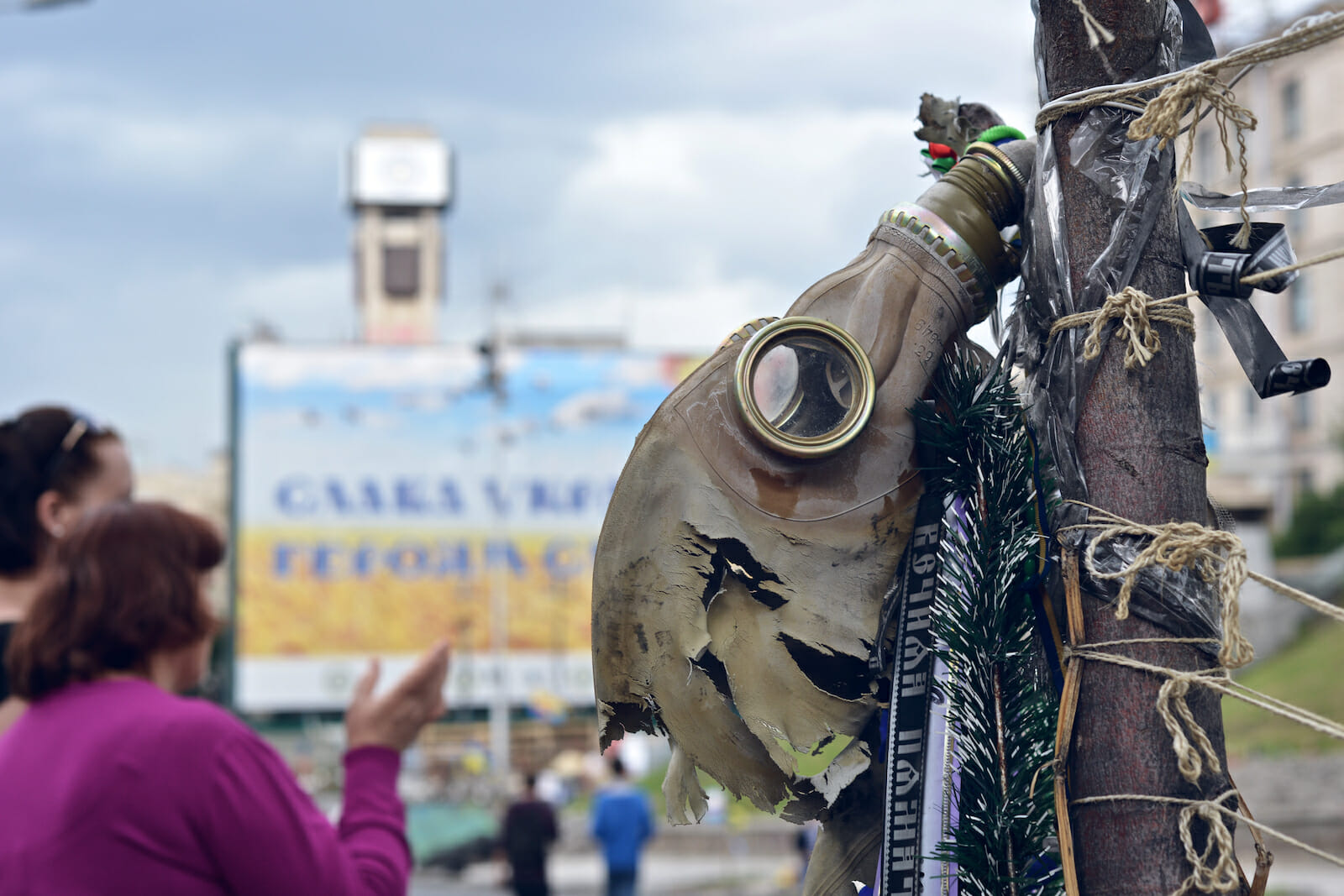
Ukraine, Russia, and the Other Europe
Geographically, Ukraine is very much a part of Europe. And while much of Russia’s land lies beyond the confines of what can be defined as “Europe,” the majority of its’ population is in fact European. However, for much of their history they have been seen, often from the outside and from within, as being part of something other than, or different from, “Europe.”
Russia and Ukraine share a long complicated history. Ukraine’s capital, Kyiv, once served as the capital of a Slavic State in Eastern Europe that spanned from the Baltic Sea to the Black Sea, and still holds tremendous cultural and historical significance for the people of Russia, Ukraine, and Belarus. The “Golden Age” of this state began around 988 A.D., when Kyiv developed closer ties to the Byzantine Empire and Kyiv’s Grand Prince Vladimir converted to Orthodox Christianity. However, internal fractures and the loss of Constantinople as a trading partner, due to its destruction in the Fourth Crusade, initiated Kyiv’s slow decline. Kyiv was attacked several times thereafter, but in 1240, an incursion by the Mongol Horde left the grand city of Kyiv in total ruin.
The Mongol invasion had a profound economic, political, and social impact on the Russian peoples, as it fragmented and alienated them further from the rest of Europe.
But, with the decline of Kievan Rus came the transformation of the Principality of Muscovy [Moscow] into the Russian Empire in the 1400s; with Kyiv returning to Russian political influence in the 1600s. However, even with the rise of Moscow into an Empire, Russia never seemed to be able to catch up with the developments of the rest of Europe, despite several attempts to modernize the country through different era’s of reform, revolution, and counter revolution.
Today, Russia and Ukraine are independent countries that want to be respected within the greater European community, but Ukraine is in dire economic straits and facing political uncertainty since Viktor Yanukovych fled to Russia. Last November Yanukovych turned down a European Union proposal which would have strengthened Ukraine’s association with the European Union and given Ukraine access to several hundred million dollars from the International Monetary Fund. Many commentators said at the time that he turned his back on the EU and turned Ukraine away from “Europe.”
This notion was solidified after Ukraine took a bailout package from Russia, which included them buying several billion dollars in Ukrainian bonds. Yet, at the time Yanukovych claimed that he had not rejected the EU association agreement, but had only put it on hold, as he still planned to sign the agreement. Explaining his decision at the time, Yanukovych said that the EU offer was humiliating to Ukraine and that, despite four years of preparation, his country was not prepared to accept the deal.
Some people have insinuated that Ukraine must choose between either closer economic ties with the European Union or through Russia’s Eurasian Economic Union. However, that is not the case. Russia has said it would not oppose, nor would it try to prevent, Ukraine from joining the EU, but if they were to sign the EU agreement that was presented in Vilnius then Ukraine’s “special trade relation status” with Russia would have to return to “normal.” Indeed, a future agreement between Ukraine and the EU could still prove to be advantageous for Russia as well. Russia and several former EU ministers have also stated that the Eurasian Union and the European Union are not “fundamentally incompatible,” and that they should find ways to “maximize [their] economic relationship.”
Ukraine and Russia are very much a part of Europe, and both seek further integration with the greater European community. Tragically, some policymakers in the EU and US can only see the answer to Ukraine’s economic problems through old paradigms. Somehow an economic crisis has become a geopolitical one, a fight between “Europe” and Russia. While Ukraine seeks a new partnership with the EU, it doesn’t want to sever its strong economic and historical ties with Russia, and it shouldn’t have to either.
Coercive actions against Russia will do little to help Ukraine solve its economic problems, nor do efforts to force Russia to accept the new Ukrainian government, which it sees as “illegitimate,” anti-Russian, and unrepresentative of the diverse Ukrainian population, serve as constructive means to help Ukraine rebuild an economy that is crumbling and a society on the verge of disintegration. Such actions only divide Europe once again between East and West and alienate a significant portion of Ukraine’s population, which is bad for all of Europe.

